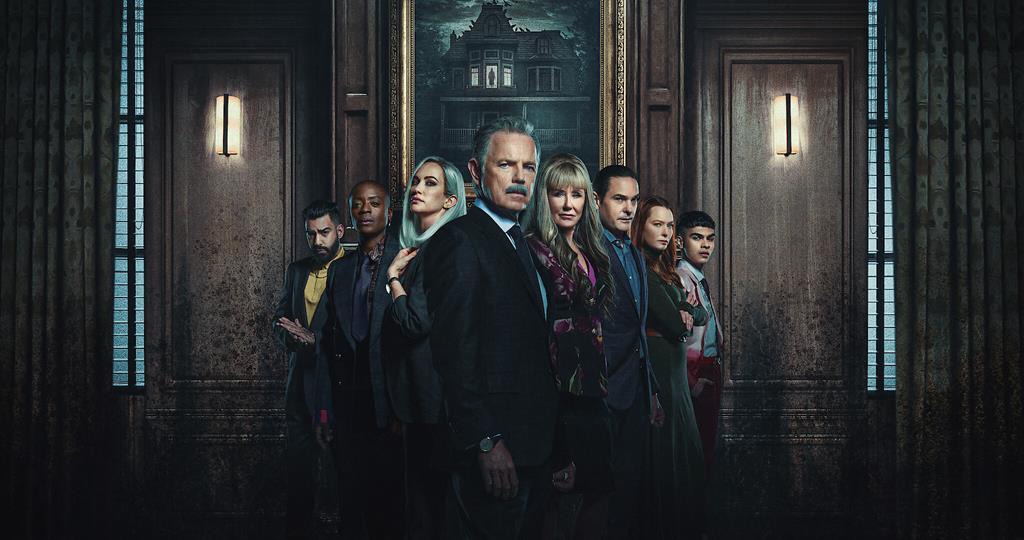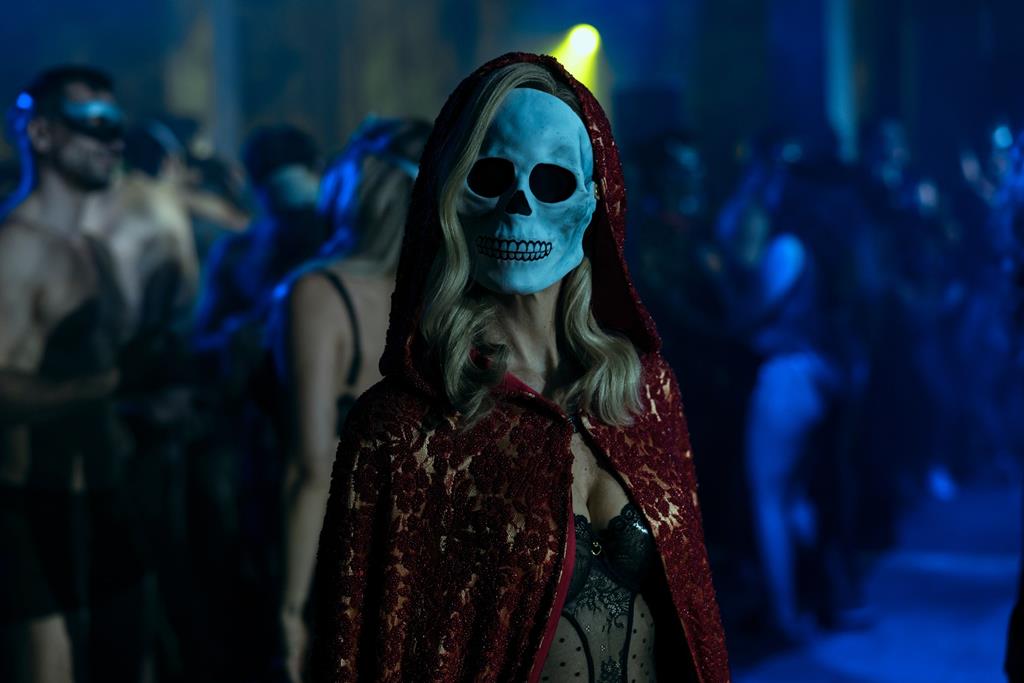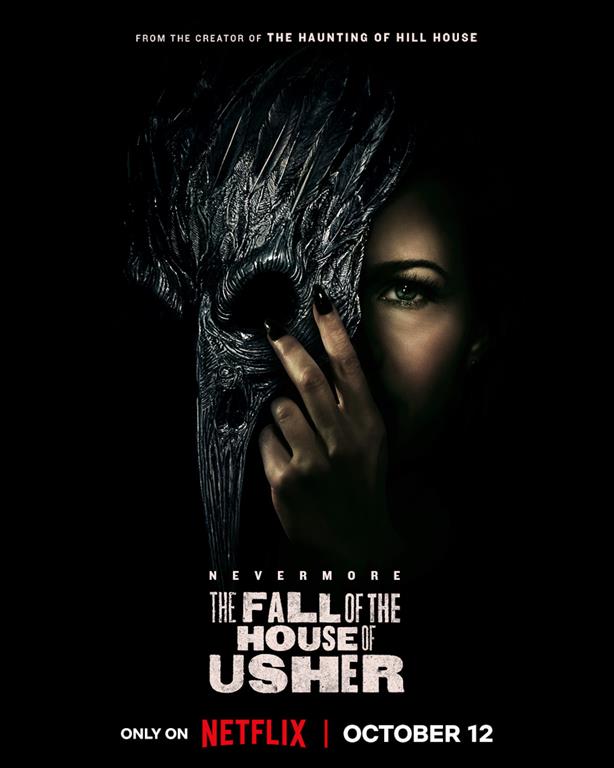We follow billionaire Roderick Usher and his six doomed children: Frederick, Tamarlane, Victorine, Napoleon, Camille, and Prospero. Connected only by their association with their father’s pharmaceutical empire, there is no love lost when the Usher children start dying horribly, one by one. Meanwhile, Roderick and his sister Madeline, already facing a federal lawsuit, descend into madness as a ghost from their past begins stalking them. Calling the Usher children “doomed” isn’t a spoiler by the way — each episode focuses on a particular family member, and foreshadows their gruesome death with audio and visual clues — but that doesn’t make the show any less tense. In fact it enhances the experience, drip-feeding you just enough information to keep you on the edge of your seat until the brutal climax. (The ending of episode two is particularly disgusting.)

The show’s focus on narcissistic elites is certainly timely. While the slashers of the prudish 1980s mainly enjoyed killing promiscuous teenagers, audiences nowadays seem to have a thirst for billionaire blood. As the wealth gap only increases between the upper crust of society and the rest of the world, recent movies like The Menu, and Ready Or Not, are examples of what I consider to be an emerging genre: the billionaire revenge fantasy flick. House of Usher might be the most explicit example to date. Unlike your typical slasher story, there is no killer in a mask here. Despite repeated warnings in each episode, the Ushers shamelessly sell their souls for short-term gratification, and wind up reaping the consequences. I was reminded of the OceanGate disaster earlier this year, when a billionaire CEO sealed his fate — and the fate of his four passengers who paid $250,000 for a trip to the abyss in a rickety submarine. House of Usher perfectly bottles the emotions felt by most of the world watching that spectacle: horror, disgust, and righteous anger at the sheer arrogance that wealth brings.
House of Usher’s visual aesthetic pays homage to the author of its namesake: The Fall of the House of Usher by Edgar Allen Poe. Much like how Hill House borrowed select elements from the Shirley Jackson novel of the same name, House of Usher remixes familiar tales in a modern context; rather than a pure adaptation, Poe’s work serves as the show’s muse. Episode titles like “Masque of the Red Death” and “The Raven” are the most obvious examples of this, but there are plenty of little references scattered throughout the story to watch out for. I’m not very well-versed when it comes to Poe, but I’m always a sucker for gothic horror, and this show scratches that itch nicely.

If I had only one slight criticism of the show, it might be that Flanagan tends to write dialogue as if he’s writing for the stage. Characters are often given hefty monologues which can occasionally disrupt the show’s flow. While this does give his talented actors a chance to shine, these monologues can occasionally make an otherwise natural scene feel a bit preachy and robotic. While these monologues may stick out to first-time viewers, they’ve been a pretty consistent staple of Flanagan’s work ever since Hill House, and it’s better to just embrace them, in order to immerse yourself into the story that Flanagan is trying to weave. And hey, I’ll take authorly excess over boring, writer’s room, committee-approved drama anyday.
If you’re a fan of horror with a socially-conscious edge, I highly recommend The Fall of the House of Usher, as well as Mike Flanagan’s other works. Just make sure you eat breakfast before watching episode two. Seriously.
Matthew Iddon was born at an exceptionally young age. He aspires to one day become old. He currently resides.


